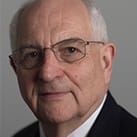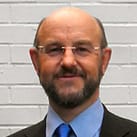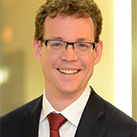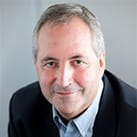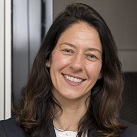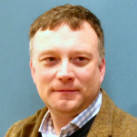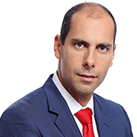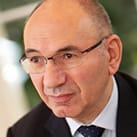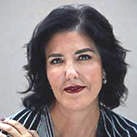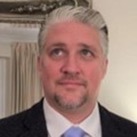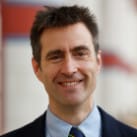9th Risk Summit (2018)

20 Jun 2018
09:00 -20:00
Times are shown in local time.
Open to: Specialists and business managers, including threat specialists, academics, policy-makers, practitioners and advisors

One Birdcage Walk
Westminster
London
SW1H 9JJ
United Kingdom
Risks Beyond Boundaries
The 2018 Risk Summit took place on 20 June 2018 at One Birdcage Walk, Westminster, London, SW1H 9JJ.
The change in venue to an international city at the heart of diverse global networks and systems complements the theme of the 2018 Summit: Risks Beyond Boundaries.
The Summit was an exploration of risks that transcend national boundaries and jurisdictions, which are truly systemic and international in nature.
Risk management of such threats, including those related to globalisation, climate change, and the convergence of digital and physical worlds will be explored through expert presentations and interactive panel sessions.
Registration closed
Registration for this event is closed. If you are interested to hear about upcoming events and other Centre-related news and resources, please join our mailing list.

Principal knowledge partners
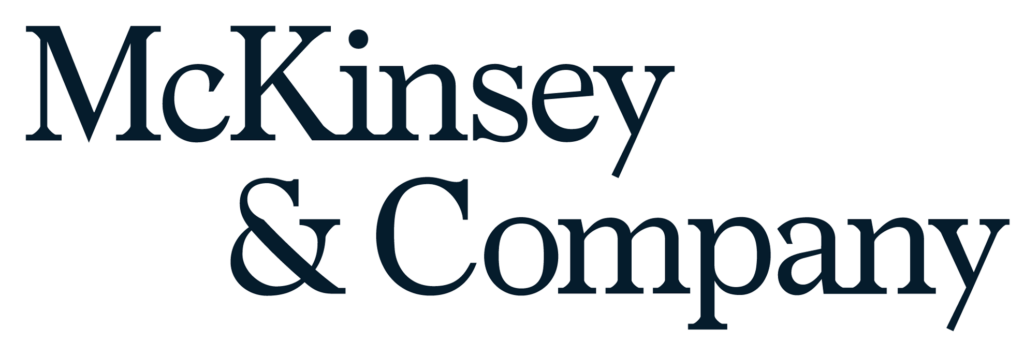
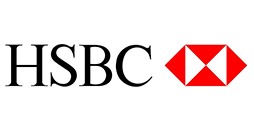
Meeting partners
Research Showcase Programme
- Session 1: Integrated Risk Assessment
- Session 2: Risk and the Digital Economy
- Session 3: Corporate Risk Profiling and Enterprise Risk Management
- Session 4: Risky Futures – Trend Risk and Business Decisions
- Risk Summit Programme
Research showcase
Session 1: Integrated Risk Assessment
09:00 – 09:30
Registration and tea/coffee
09:30 – 09:45
Modelling an Integrated Risk View
Dr Andrew Coburn, Director of Advisory Board, Cambridge Centre for Risk Studies
09:45 – 10:00
Cambridge Global Risk Index for 2018
Jennifer Copic, Research Associate, Cambridge Centre for Risk Studies
10:00 – 10:15
Multi-line Insurance Clash Management
Kayla Strong, Research Assistant, Cambridge Centre for Risk Studies
10:15 – 10:30
Example Scenarios with Systemic Consequences
Kelly Quantrill, Research Assistant, Cambridge Centre for Risk Studies
Research showcase
Session 2: Risk and the Digital Economy
10:30 – 10:45
2018 Cyber Risk Landscape
Dr Jennifer Daffron, Research Associate, Cambridge Centre for Risk Studies
10:45 – 11:00
Threat Actors in the Cyber Black Economy
Andrew Smith, Research Assistant, Cambridge Centre for Risk Studies
11:00 – 11:15
Cyber Terrorism Threat Intelligence/Loss Modelling
Tamara Evan, Research Assistant, Centre for Risk Studies
11:15 – 11:45
Tea/coffee break
Research showcase
Session 3: Corporate Risk Profiling and Enterprise Risk Management
11:45 – 12:00
Enterprise Perspective of Corporate Risk
Dr Michelle Tuveson, Executive Director, Cambridge Centre for Risk Studies
12:00 – 12:15
Corporate Risk Profiling – Insights from Sectoral Case Studies
Oliver Carpenter, Research Assistant, Cambridge Centre for Risk Studies
12:15 – 12:30
Cambridge Risk Framework – Managing Enterprise Risk
Simon Ruffle, Director of Research & Innovation, Cambridge Centre for Risk Studies
Research showcase
Session 4: Risky Futures – Trend Risk and Business Decisions
12:30 – 12:45
Climate Change, Protection Gap, and the Emerging Markets
Arjun Mahalingam, Research Assistant, Cambridge Centre for Risk Studies
12:45 – 13:00
Overview of Trend Risks: Insights into Identification and Assessment
Professor Daniel Ralph, Academic Director, Cambridge Centre for Risk Studies
13:00 – 14:00
Lunch and registration reopens at 13:30
Risk Summit Programme
20 June 2018
13:00 – 14:00
Risk Summit registration
14:00 – 14:15
Risk Summit Welcome
Dr Michelle Tuveson, Executive Director, Cambridge Centre for Risk Studies
14:15 – 15:00
Plenary Session 1: Global Financial Systems
Moderated by: Professor Daniel Ralph, Academic Director, Cambridge Centre for Risk Studies
Keynote: The Perils of Pauline: How to Prevent the Economy from Blowing Up Finance and Finance from Blowing Up the Economy – Martin Wolf, Chief Economics Commentator, Financial Times
15:00 – 15:45
Panel Session
Moderated by: Professor Daniel Ralph, Academic Director, Cambridge Centre for Risk Studies
- Professor Elroy Dimson, Chairman, Newton Centre for Endowment Asset Management, Cambridge Judge Business School
- Tina Fordham, Managing Director and Chief Global Political Analyst, Citi Research
- Dr Duncan Needham, Director, Centre for Financial History, University of Cambridge
- Martin Wolf, Chief Economics Commentator, Financial Times
15:45 – 16:15
Coffee Break and Group Photograph
16:15 – 16:25
Plenary Session 2: Climate Change Risks: Options for Response
Moderated by: Dr Andrew Coburn, Director of Advisory Board, Centre for Risk Studies
How Companies Can Adapt to Climate Risks – Hauke Engel, Associate Partner, McKinsey & Company
16:25 – 16:35
Geoengineering, and Can We Refreeze the Arctic?
Dr Hugh Hunt, Reader, Department of Engineering, University of Cambridge
16:35 – 17:15
Panel Session: Climate Change Risks: Options for Response
Moderated by: Professor William J. Nuttall, Professor of Energy, School of Engineering and Innovation, The Open University
- Dominic Emery, Vice President, Strategic Planning, BP
- Hauke Engel, Consultant, McKinsey & Company
- Dr Hugh Hunt, Reader, University of Cambridge, Department of Engineering
- Zoe Knight, Managing Director, Group Head, HSBC Centre of Sustainable Finance
17:15 – 17:25
McKinsey Risk Prize announcement
Presented by: Aleksander Petrov, Partner, McKinsey & Company and Professor Daniel Ralph, Academic Director, Cambridge Centre for Risk Studies
17:25 – 17:40
Plenary Session 3: Digital Physical Convergence
Moderated by: Daniel Franklin, Executive Editor, The Economist
Asset Tokenisation and Implications for Physical Trade and Global Business – Robert Wardrop, Co-founder and Director, Centre for Alternative Finance, Cambridge Judge Business School
17:40 – 17:55
Confronting the Dark Realities of the Digital World
Eireann Leverett, Senior Risk Researcher, Centre for Risk Studies
17:55 – 18:15
Fireside Chat: Digital-Physical Futures – Imagining Business and Societal Transformations
Moderated by: Daniel Franklin, Executive Editor, The Economist
- Eireann Leverett, Senior Risk Researcher, Centre for Risk Studies
- Robert Wardrop, Co-founder and Director, Centre for Alternative Finance, Cambridge Judge Business School
18:15 – 18:30
Risk Summit close
Michelle Tuveson, Executive Director, Centre for Risk Studies
18:30 – 20:00
Networking Reception
Keynote speaker
Martin Wolf
Associate Editor and Chief Economics Commentator, Financial Times
Martin Wolf is Associate Editor and Chief Economics Commentator at the Financial Times, London. He was awarded the CBE (Commander of the British Empire) in 2000 for services to financial journalism. He was a member of the UK government’s Independent Commission on Banking between June 2010 and September 2011. Mr Wolf was made a Doctor of Science (Econ), honoris causa, by the London School of Economics in 2006 and a Doctor of Science, honoris causa, by Warwick University, in 2009. He is an honorary fellow of Nuffield College, Oxford University and of King’s College, London.
Mr Wolf won the Ludwig Erhard Prize for economic commentary for 2009. He won “Commentariat of the Year 2009” at the Comment Awards, sponsored by Editorial Intelligence. He was placed 15th in Foreign Policy’s list of the “Top 100 Global Thinkers” in December 2009 and 37th in the same list for 2010. He was joint winner of the 2009 award for columns in “giant newspapers” at the 15th annual Best in Business Journalism competition of The Society of American Business Editors and Writers. He won the 33rd Ischia International Journalism Prize in 2012. He won the Overseas Press Club of America’s prize for “best commentary on international news in any medium” for 2013.
His most recent publications are Why Globalization Works (Yale University Press, 2004), Fixing Global Finance (Washington DC: Johns Hopkins University Press, and London: Yale University Press, 2008 and 2010) and The Shifts and The Shocks: What we’ve learned – and have still to learn – from the financial crisis (London and New York: Allen Lane, 2014).
Speakers
Dr Andrew Coburn
Director of Advisory Board, Cambridge Centre for Risk Studies
Andrew is a Founder and Director of the Centre for Risk Studies’ External Advisory Board, and Senior Vice President at Risk Management Solutions, the leading provider of catastrophe risk models to the insurance industry. He is also a Fellow of Cambridge Judge Business School.
Hauke Engel
Partner, McKinsey & Company
Hauke is a junior partner at McKinsey & Company, where he works with companies in the mobility and energy space on sustainability and strategy topics. He is a member of tt30, the young think tank of the Club of Rome, and a Fellow of the Royal Geographical Society. He has a background in astrophysics and is an avid mountaineer.
Daniel Franklin
Executive Editor, The Economist
In 2018 Daniel Franklin was appointed to Executive and Diplomatic Editor. Daniel initially held the role of Executive Editor of The Economist from 2006 and Editor since 2003 of The Economist‘s annual publication, The World in…; which focuses on the year ahead. Daniel published Megatech: Technology in 2050 in 2017 and his book on long-term trends, Megachange: The World in 2050, was published in 2012. Mr Franklin joined The Economist in 1983 to write about Soviet and East European affairs. As the newspaper’s Europe Editor from 1986 to 1992 he covered the great European upheavals, from the collapse of communism to the signing of the Maastricht treaty. After a stint as Britain Editor he moved to the United States as Washington Bureau Chief, covering the first Clinton term. In 1997 he moved back to London as Editorial Director of the Economist Intelligence Unit. From 2006 to 2010 he was Editor-in-Chief of Economist.com. For the following four years he was Business Affairs Editor, running the paper’s coverage of business, finance, science and technology. He also helps with new initiatives undertaken by The Economist Group. His special report on corporate social responsibility, Just good business, was published in 2008.
Zoë Knight
Managing Director, Group Head, HSBC Centre of Sustainable Finance
Zoë Knight is a Managing Director and Group Head of the HSBC Centre of Sustainable Finance. She joined HSBC in 2010 and most recently led the Climate Change Centre of Excellence within Global Research, having been an investment analyst at global financial institutions since 1997.
For ten years she focused on equity strategy, before focusing on socially responsible investing. Since joining HSBC Zoë has co-authored reports on low-carbon opportunities in bond and equity markets, as well as long-term carbon and water risks. Previously, she contributed a chapter to Investment Opportunities for a Low-Carbon World (2009). Throughout her career she has been ranked in Extel and Institutional Investor.
She also sits on the Board of the World Energy Council UK and holds a BSc (Hons) in Economics from the University of Bath.
Duncan Needham
Senior Risk Researcher, Cambridge Centre for Risk Studies
Duncan Needham is Director of the Centre of Financial History at Newnham College, Director of the MPhil programme in Economic and Social History at the University of Cambridge, Associate Lecturer at the Faculty of History, and a Senior Risk Researcher at the Centre for Risk Studies.
After completing his first degree at the London School of Economics, and a Masters at Cass Business in Shipping, Trade and Finance, Duncan worked at Credit Suisse Financial Products and JP Morgan, where he ran the banks and financial desk, trading bonds and credit default swaps. He then spent four years running Cairn Capital’s Investment Grade Collateralised Debt Obligation business, before returning to academia in 2008 to complete his MPhil in Economic History.
Duncan recently completed his PhD at the University of Cambridge. This was published by Palgrave Macmillan in 2014 as UK Monetary Policy from Devaluation to Thatcher, 1967-82.
Aleksander Petrov
Partner, McKinsey & Company
Aleksander Petrov is a Partner at McKinsey and Leader of the UK Risk Practice. He has broad experience in capital markets, derivatives pricing and portfolio management, supporting clients on a variety of risk topics focused on asset analysis, stress testing and recovery planning. Prior to joining McKinsey & Co in 2009 Aleksander Petrov spent approximately 10 years in various quant and trading role within the European fixed income.
Simon Ruffle
Director of Research & Innovation, Cambridge Centre for Risk Studies
Simon Ruffle is a member of the Executive Team and is responsible for the overall research framework of the Centre. He is researching into innovative sourcing of business economic data and is leading the cyber threat research track. He has a background in natural hazards and the insurance industry.
Robert Wardrop
Co-founder and Director, Cambridge Centre for Alternative Finance, Cambridge Judge Business School
Robert is a sociologist in the Finance subject group at Cambridge Judge Business School. He has a successful track record of investing in and advising small and mid-sized firms in North America, Europe and Asia spanning over 30 years, and this experience led to his interest in understanding how and why alternative channels of finance emerge outside the traditional banking and capital markets system. His current research focuses on small and mid-sized firms that issue bonds as an alternative to bank financing, with the aim of better understanding the decision-making behaviour of firm owners and classes of investors across different economies. In addition to his academic role at the University of Cambridge, Robert currently serves on the Global Advisory Boards of the University of Chicago Booth School of Business and the School of Business at Queen’s University in Kingston, Canada.
Elroy Dimson
Research Director (Finance & Accounting) and Chairman of the Newton Centre for Endowment Asset Management, Cambridge Judge Business School
Professor Elroy Dimson chairs the Newton Centre for Endowment Asset Management at Cambridge Judge Business School, and is Emeritus Professor of Finance at London Business School. He is a Non-Executive Director of FTSE International, is on the Steering Committee of the Financial Economists’ Roundtable, and is an Advisory Council member for Financial Analysts Journal. He is a Fellow of the Royal Historical Society, Honorary Fellow of CFA UK and of the Institute of Actuaries. His PhD is from London Business School.
Professor Dimson’s books include Triumph of the Optimists, the Global Investment Returns Yearbook 2016, the Global Investment Returns Sourcebook 2016 (all with Paul Marsh and Mike Staunton), Endowment Asset Management (with Shanta Acharya), and Financial Market History (with David Chambers, forthcoming). Publications since 2015 have been on subjects such as active ownership (Review of Financial Studies), real assets (Journal of Financial Economics), financial history (Journal of Financial and Quantitative Analysis), endowment strategy (Financial Analysts Journal), long-horizon investing (five book chapters), as well as case studies on manager selection and on stocks for the long run (both Harvard Business School).
Elroy Dimson has been an Emeritus Professor at London Business School since 2009. Prior to 2009, he served London Business School as Professor of Finance, Faculty Governor, Chair of the Finance Area, Chair of the Accounting Area, Dean of MBA Programmes, and Director of the Initiative on Foundation and Endowment Asset Management. He has held visiting positions at Chicago, Berkeley, the Bank of England, and other institutions, as well as a variety of board positions.
Tina Fordham
Managing Director and Chief Global Political Analyst, Citi Research
Tina Fordham is Managing Director and Chief Global Political Analyst at Citi, the first to hold this position. Fordham joined Citi in 2003, where she advises institutional investors and corporate boards on the implications of macro political, security and socio-economic factors.
Fordham also spearheads Citi’s research on gender economics, and in 2016 was appointed to the United Nation’s first High-Level Panel on Women’s Economic Empowerment, which also include IMF President Christine Lagarde.
She has been named four times in the FN’s “Top 100 Most Influential Women in European Finance”, Harper’s Bazaar 150 Visionary Women in Britain and in 2017 was distinguished as being in the Top 100 Most Influential Geopolitics Experts worldwide, alongside Condoleezza Rice.
Fordham serves on the International Advisory Boards of the think tank Carnegie Europe and the School of International and Public Affairs at Columbia University, where she earned her Master’s degree in International Affairs. She is also a member of the Citi Veterans Network.
Previously, she served as senior advisor in the UK Prime Minister’s Strategy Unit and head of global political risk at Eurasia Group, where she started the firm’s financial markets research business in 1999. She is a frequent commentator in the international press.
Hugh Hunt
Reader in Engineering Dynamics and Vibration, University of Cambridge
Dr Hugh Hunt is a Reader in Engineering Dynamics and Vibration at Cambridge University. His research centres on the control of noise and vibration from underground railways, but he got caught up in geoengineering as Co-Investigator on the SPICE project, 2010-15, which looked at various aspects of SRM. He was responsible for an outdoor experiment, the 1km test-bed, which was intended to evaluate the influence of win on the motion of a tethered balloon, but controversy over geoengineering experiments led to the test-bed being cancelled. He is now promoting other technologies for the removal of non-CO2 greenhouse gases, in particular methane and N20. He also runs the Cambridge Climate Lecture Series which aims to raise awareness of the urgency around climate change.
Hugh is a regular presenter on television documentaries on Channel 4, PBS Nova and SBS, including “Dambusters: Building the Bouncing Bomb”, “Attack of the Zeppelins”, “Escape from Colditz” and “Guy Martin Wall of Death”. He is Keeper of the Clock at Trinity College, a clock which is demonstrably the most accurate tower clock in the world. He has an impressive collection of boomerangs which he uses to inspire students in the study of dynamics and mechanics.
William J Nuttall
Professor of Energy, School of Engineering and Innovation, The Open University
William J Nuttall is Professor of Energy at the Open University, based in Milton Keynes, UK. He joined the Open University in October 2012 from the University of Cambridge where he had taught Technology Policy for ten years.
Professor Nuttall’s career has taken him from experimental physics (completing a PhD at MIT, USA in 1993) to technology policy with an emphasis on nuclear energy policy.
He is Open University lead for the EPSRC Imperial, Cambridge, Open Centre for Doctoral Training in Nuclear Energy; he is Honorary Editor and Chair of the Editorial Panel for the Proceedings of the Institution of Civil Engineers – Energy; and he is a Fellow of Hughes Hall Cambridge. He has extensive policy advice experience for the UK Government and the institutions of the European Union.
He was recently involved in a major EPSRC funded collaboration concerning policy for severe nuclear accident response. That multifaceted study concluded that a policy of large-scale population relocation following a severe nuclear accident will rarely be of significant benefit and it can come at great cost in financial and other terms.
Daniel Ralph
Academic Director, Cambridge Centre for Risk Studies and Professor of Operations Research, Cambridge Judge Business School
Professor Daniel Ralph is a Founder and Academic Director of the Centre for Risk Studies, Professor of Operations Research at the University of Cambridge Judge Business School, and a Fellow of Churchill College. Daniel’s research interests include identification and management of systemic risk, risk aversion in investment, economic equilibria models and optimisation methods. Management stress test, via selection and construction of catastrophe scenarios, is one focus of his work in the Cambridge Centre for Risk Studies. Another is the role and expression of risk management within organisations. Daniel engages across scientific and social science academia, a variety of commercial and industrial sectors, and government policy making. He was Editor-in-Chief of Mathematical Programming (Series B) from 2007-2013.
Michelle Tuveson
Executive Director, Cambridge Centre for Risk Studies
Michelle Tuveson is a Founder and Executive Director at the Cambridge Centre for Risk Studies hosted at the University of Cambridge Judge Business School. Her responsibilities include the overall executive leadership at the Centre. This includes developing partnership relationships with corporations, governments, and other academic centres.




